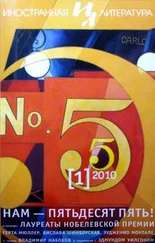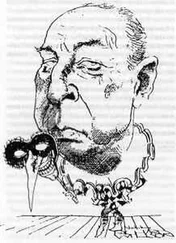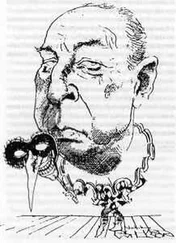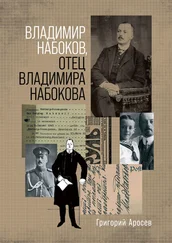Владимир Набоков - Vladimir Nabokov Pnin
Здесь есть возможность читать онлайн «Владимир Набоков - Vladimir Nabokov Pnin» весь текст электронной книги совершенно бесплатно (целиком полную версию без сокращений). В некоторых случаях можно слушать аудио, скачать через торрент в формате fb2 и присутствует краткое содержание. Жанр: Классическая проза, на английском языке. Описание произведения, (предисловие) а так же отзывы посетителей доступны на портале библиотеки ЛибКат.
- Название:Vladimir Nabokov Pnin
- Автор:
- Жанр:
- Год:неизвестен
- ISBN:нет данных
- Рейтинг книги:4 / 5. Голосов: 2
-
Избранное:Добавить в избранное
- Отзывы:
-
Ваша оценка:
- 80
- 1
- 2
- 3
- 4
- 5
Vladimir Nabokov Pnin: краткое содержание, описание и аннотация
Предлагаем к чтению аннотацию, описание, краткое содержание или предисловие (зависит от того, что написал сам автор книги «Vladimir Nabokov Pnin»). Если вы не нашли необходимую информацию о книге — напишите в комментариях, мы постараемся отыскать её.
Vladimir Nabokov Pnin — читать онлайн бесплатно полную книгу (весь текст) целиком
Ниже представлен текст книги, разбитый по страницам. Система сохранения места последней прочитанной страницы, позволяет с удобством читать онлайн бесплатно книгу «Vladimir Nabokov Pnin», без необходимости каждый раз заново искать на чём Вы остановились. Поставьте закладку, и сможете в любой момент перейти на страницу, на которой закончили чтение.
Интервал:
Закладка:
Samuil Lvovich Shpolyanski, a large majestically calm old gentleman, and small, excitable, stuttering Count Fyodor Nikitich Poroshin, both of whom, around 1920, had been members of one of those heroic Regional Governments that were formed in the Russian provinces by democratic groups to withstand Bolshevik dictatorship, would pace the avenue of pines and discuss the tactics to be adopted at the next joint meeting of the Free Russia Committee (which they had founded in New York) with another, younger, anti-Communist organization. From a pavilion half smothered by locust trees came fragments of a heated exchange between Professor Bolotov, who taught the History of Philosophy, and Professor Chateau, who taught the Philosophy of History: 'Reality is Duration,' one voice, Bolotov's, would boom. 'It is not!' the other would cry. 'A soap bubble is as real as a fossil tooth!'
Pnin and Chateau, both born in the late nineties of the nineteenth century, were comparative youngsters. Most of the other men had seen sixty and had trudged on. On the other hand, a few of the ladies, such as Countess Poroshin and Madam Bolotov, were still in their late forties and thanks to the hygienic atmosphere of the New World, had not only preserved, but improved, their good looks. Some parents brought their offspring with them--healthy, tall, indolent, difficult American children of college age, with no sense of Nature, and no Russian, and no interest whatsoever in the niceties of their parents' backgrounds and pasts. They seemed to live at The Pines on a physical and mental plane entirely different from that of their parents: now and then passing from their own level to ours through a kind of interdimensional shimmer; responding curtly to a well-meaning Russian joke or anxious piece of advice, and then fading away again, keeping always aloof (so that one felt one had engendered a brood of elves), and preferring any Onkwedo store product, any sort of canned goods to the marvellous Russian foods provided by the Kukolnikov household at loud, long dinners on the screened porch. With great distress Poroshin would say of his children (Igor and Olga, college sophomores) 'My twins are exasperating. When I see them at home during breakfast or dinner and try to tell them most interesting, most exciting things--for instance, about local elective self-government in the Russian Far North in the seventeenth century or, say, something about the history of the first medical schools in Russia--there is, by the way, an excellent monograph by Chistovich on the subject, published in 1883--they simply wander off and turn on the radio in their rooms.' Both young people were around the summer Pnin was invited to The Pines. But they stayed invisible; they would have been hideously bored in this out-of-the-way place, had not Olga's admirer, a college boy whose surname nobody seemed to know, arrived from Boston for the week-end in a spectacular car, and had not Igor found a congenial companion in Nina, the Bolotov girl, a handsome slattern with Egyptian eyes and brown limbs, who went to a dancing school in New York.
The household was looked after by Praskovia, a sturdy, sixty-year-old woman of the people with the vivacity of one a score of years younger. It was an exhilarating sight to watch her as she stood on the back porch surveying the chickens, knuckles on hips, dressed in baggy home-made shorts and a matronly blouse with rhinestones. She had nursed Alexandr and his brother when both were children in Harbin and now she was helped in her household duties by her husband, a gloomy and stolid old Cossack whose main passions in life were amateur bookbinding--a self-taught and almost pathological process that he was impelled to inflict upon any old catalogue or pulp magazine that came his way; the making of fruit liqueurs; and the killing of small forest animals.
Of that season's guests, Pnin knew well Professor Chateau, a friend of his youth, with whom he had attended the University of Prague in the early twenties, and he was also well acquainted with the Bolotovs, whom he had last seen in 1949 when he welcomed them with a speech at a formal dinner given them by the Association of Russian Йmigrй Scholars at the Barbizon-Plaza, upon the occasion of Bolotov's arrival from France. Personally, I never cared much for Bolotov and his philosophical works, which so oddly combine the obscure and the trite; the man's achievement is perhaps a mountain--but a mountain of platitudes; I have always liked, however, Varvara, the seedy philosopher's exuberant buxom wife. When she first visited The Pines, in 1951, she had never seen the New England countryside before. Its birches and bilberries deceived her into placing mentally Lake Onkwedo, not on the parallel of, say, Lake Ohrida in the Balkans, where it belonged, but on that of Lake Onega in northern Russia, where she had spent her first fifteen summers, before fleeing from the Bolsheviks to western Europe, with her aunt Lidia Vinogradov, the well-known feminist and social worker. Consequently the sight of a humming-bird in probing flight, or a catalpa in ample bloom, produced upon Varvara the effect of some unnatural or exotic vision. More fabulous than pictures in a bestiary were to her the tremendous porcupines that came to gnaw at the delicious, gamy old wood of the house, or the elegant, eerie little skunks that sampled the cat's milk in the backyard. She was nonplussed and enchanted by the number of plants and creatures she could not identify, mistook Yellow Warblers for stray canaries, and on the occasion of Susan's birthday was known to have brought, with pride and panting enthusiasm, for the ornamentation of the dinner table, a profusion of beautiful poison-ivy leaves, hugged to her pink, freckled breast.
3
The Bolotovs and Madam Shpolyanski, a little lean woman in slacks, were the first people to see Pnin as he cautiously turned into a sandy avenue, bordered with wild lupins, and, sitting very straight, stiffly clutching the steering-wheel as if he were a farmer more used to his tractor than to his car, entered, at ten miles an hour and in first gear, the grove of old, dishevelled, curiously authentic-looking pines that separated the paved road from Cook's Castle.
Varvara buoyantly rose from the seat of the pavilion--where she and Roza Shpolyanski had just discovered Bolotov reading a battered book and smoking a forbidden cigarette. She greeted Pnin with a clapping of hands, while her husband showed as much geniality as he was capable of by slowly waving the book he had closed on his thumb to mark the place. Pnin killed the motor and sat beaming at his friends. The collar of his green sport shirt was undone; his partly unzipped windbreaker seemed too tight for his impressive torso; his bronzed bald head, with the puckered brow and conspicuous vermicular vein on the temple, bent low as he wrestled with the door handle and finally dived out of the car.
'Avtomobil', kostyum--nu pryamo amerikanets (a veritable American), pryamo Ayzenhauer!' said Varvara, and introduced Pnin to Roza Abramovna Shpolyanski.
'We had some mutual friends forty years ago,' remarked that lady, peering at Pnin with curiosity.
'Oh, let us not mention such astronomical figures,' said Bolotov, approaching and replacing with a grass blade the thumb he had been using as a bookmarker. 'You know,' he continued, shaking Pnin's hand, 'I am rereading Anna Karenina for the seventh time and I derive as much rapture as I did, not forty, but sixty, years ago, when I was a lad of seven. And, every time, one discovers new things--for instance, I notice now that Lyov Nikolaich does not know on what day his novel starts: it seems to be Friday because that is the day the clockman comes to wind up the clocks in the Oblonski house, but it is also Thursday as mentioned in the conversation at the skating rink between Lyovin and Kitty's mother.'
'What on earth does it matter,' cried Varvara. 'Who on earth wants to know the exact day?'
Читать дальшеИнтервал:
Закладка:
Похожие книги на «Vladimir Nabokov Pnin»
Представляем Вашему вниманию похожие книги на «Vladimir Nabokov Pnin» списком для выбора. Мы отобрали схожую по названию и смыслу литературу в надежде предоставить читателям больше вариантов отыскать новые, интересные, ещё непрочитанные произведения.
Обсуждение, отзывы о книге «Vladimir Nabokov Pnin» и просто собственные мнения читателей. Оставьте ваши комментарии, напишите, что Вы думаете о произведении, его смысле или главных героях. Укажите что конкретно понравилось, а что нет, и почему Вы так считаете.










